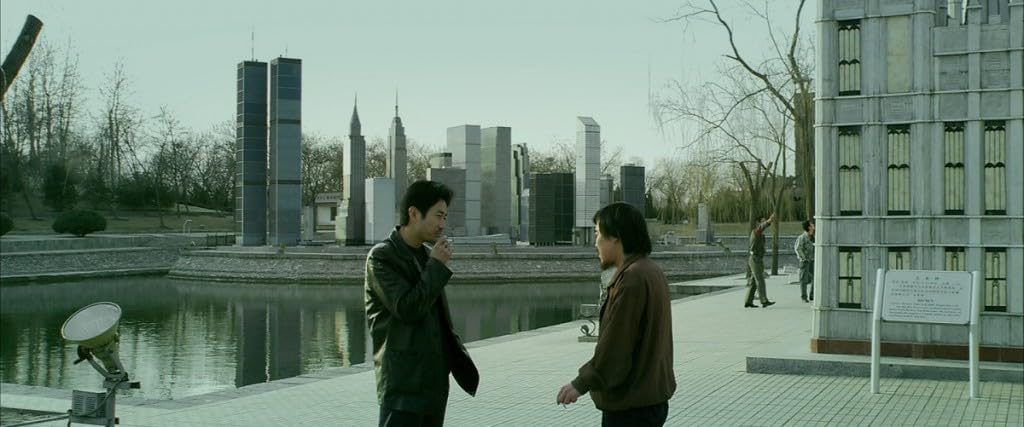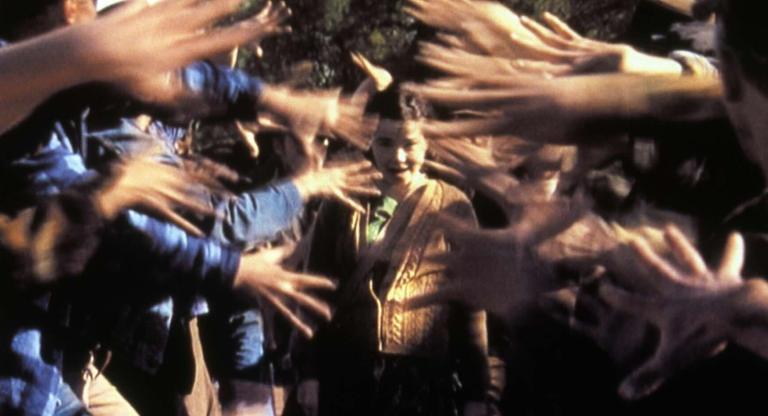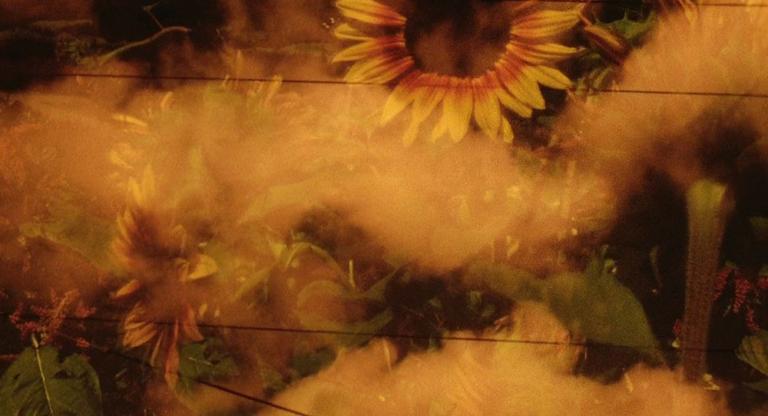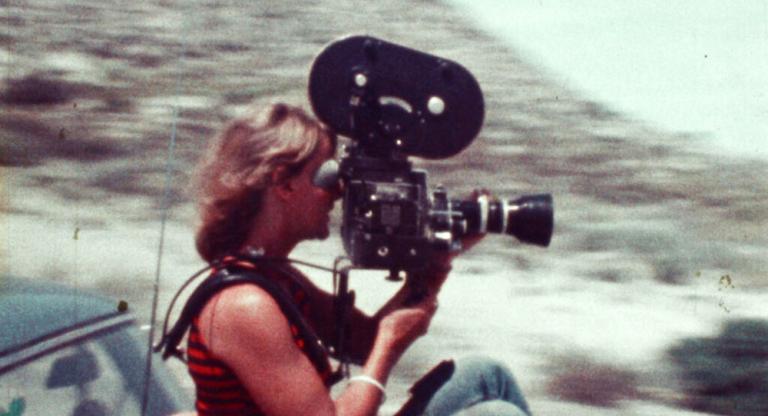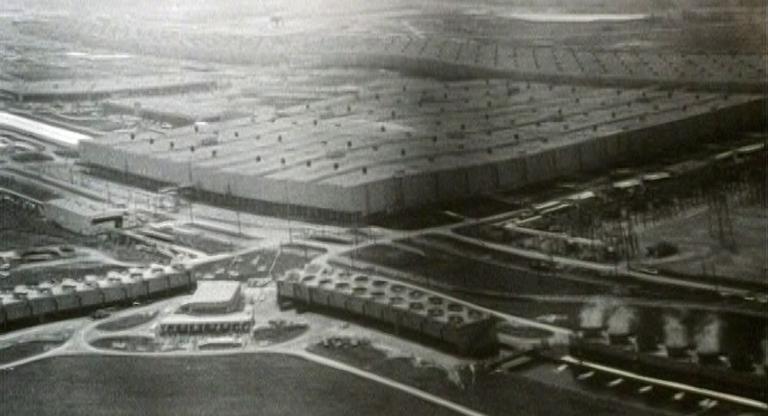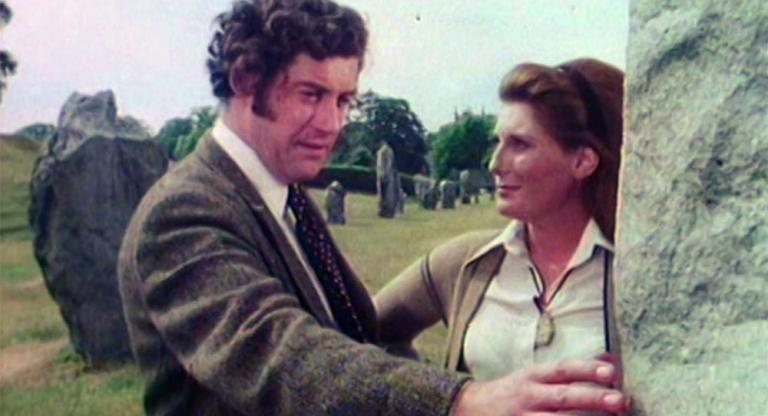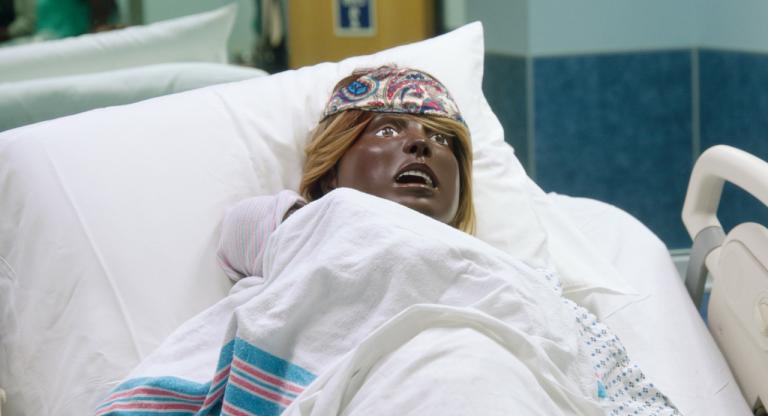The setting for Jia Zhangke’s The World (2004) is Beijing World Park, an Umbert Eco-like attraction where visitors frolic among, and maybe more importantly take pictures with, miniature replicas of monuments from around the globe. World Park boasts the slogan,“See the world without ever leaving Beijing.” It’s a bittersweet sentiment when it’s sardonically repeated by one of the film’s central characters as she examines a visiting friend’s passport. The young people who work at the park, many of whom are from rural or less affluent provinces, inhabit a small world where traveling abroad, or even riding in an airplane, seems foreclosed to them. What they have access to instead is a world of fakes, be they consumer, ideological, or emotional.
Tao (Zhangke’s wife, Zhao Tao) performs in the park’s Las Vegas-like pageants in which young women parade around in international dress. She is in a relationship with Taisheng (Chen Taisheng), a security guard at the park who is also a point of contact for migrants coming to Beijing from his native Shanxi (Zhangke’s native province) looking for work. But the couple’s paths diverge when Taisheng meets Qun (Huang Yiqun), a sexy counterfeiter. As Taisheng secretly courts Qun, Tao befriends a Russian woman, Anna (Alla Shcherbakova), who works at World Park with her. Eventually, the temporary escape these relationships offer are shattered by a litany of tragedies small and large: Qun tells Taisheng she is traveling abroad to reunite with her husband; Tao discovers that Anna is working as an escort after her own brush with a potential exploiter; and one of the recently arrived migrants Taisheng has helped is killed on the job. There is a brief bright spot when another couple from World Park is married, but when Tao sees a text message from Qun on Taisheng’s phone, things take an irrevocably bad turn.
In China, the concept of shanzhai, which translates to “mountain fortress” or “mountain camp,” has come to refer to counterfeit consumer goods—usually electronics such as cell phones. Shanzhai products are thought to sometimes improve on those they are counterfeiting, embodying a sort of techno-optimism where the value of brands is lesser than that of innovation. Cell phones have a central place in The World; the film sees text messages come to life as dreamy fantasies in a series of animated sequences. But Zhangke’s view of the role these technologies play in the lives of young people is not one of shanzhai optimism; instead, he suggests that these tools turn their users inward (hence the phantasmagorical animated sequences) and isolate people from one another as much as they bring them together.
Zhangke’s film is a work of strange and sumptuous ambition that mixes humor, heartbreak, and, owing to its unique backdrop, a pervasive uncanniness and implicit symbolic punch. In The World, the most fundamental of human dramas concerning love, work, hope, betrayal, failure, and death, are placed in stark relief against the cheap simulacral promise of something more. While the film was Zhangke’s first to be met with approval by the Chinese government, and even though its deft exploration of technology, rapid modernization, and consumerism’s erosion of reality is not wholly pessimistic, it’s hard to read the work as anything but bleak.
The World screens Thursday, Nov 21, at BAMPFA as part of the series Jia Zhangke: Filmmaker in Residence.
